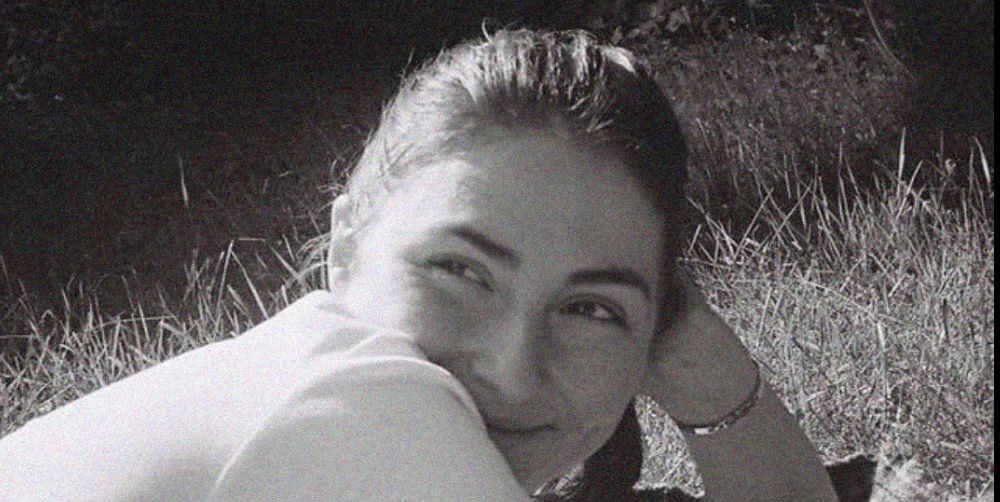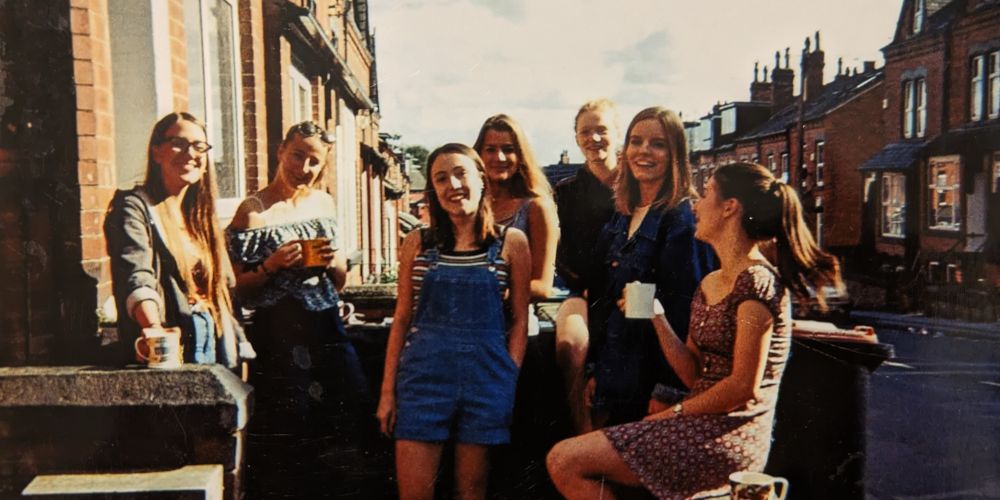
Anna May experienced loss from an early age. She used her experiences and knowledge to set up the Student Grief Network, which aims to soften the impact of bereavement in universities across the UK.
Anna May (English Literature and Sociology 2020) was just 10 when her brother died. It was her first experience of loss, and one that would change everything. “A loss like that can really shatter someone’s world and lead to a whole host of challenges,” Anna said. “It often feels easier to shut it all out. I didn’t want to be the girl whose brother had died, I just wanted to be normal.”
Anna pushed it away, and it wasn’t until she moved to university that the grief resurfaced. She explored ways to ease the pain, joining discussion groups and going to counselling. She even planned a theatre project about grief.
And then her dad died.
“When my brother died, I couldn’t find a silver lining,” Anna said. “It fractured my family and it led to a lot of issues. But when my dad died in my final year at Leeds, while still incredibly painful, I found another side to grief that allowed me to connect to myself and the people around me. I was able to move forward – not move on, because it doesn’t go away, but forward.”
Anna’s experiences motivated her to form the nationwide Student Grief Network (SGN), a social enterprise which creates an ecosystem of support across the UK universities – and provides advice for those suffering with loss, and those supporting them.
It’s important that we’re not giving a rule book or black and white understanding of grief. It’s different for each person.
“University is a particularly challenging place to experience grief,” Anna said. “Especially when you first arrive – usually at the age of 18.” Students must navigate a new city without having formed meaningful relationships. They are a long way from old support networks and familiarity.
“And then you’re hit with a loss, and basic life tasks become hard – your brain can stop functioning properly in grief, you can’t concentrate and you forget things. You’re expected to be having the best time of your life and that’s not compatible with your feelings, which alienates you even more.”
Anna was not alone when she experienced grief at university. Research has shown that around 4% of people lose a parent by the age of sixteen and nearly one third of students experience a loss of some kind during their studies.
Anna joined the Bereaved and Young Student Network in Leeds, trialling discussion groups and creative workshops. “There was nothing structured in place initially – we would go bowling or out for dinner, but we weren’t talking about things.”
SGN started to take shape, and as more volunteers came on board, the support offered expanded. It now includes online information, staff training, creative projects, groups and events. SGN works nationwide, bringing students together to soften the impact of bereavement, while equipping institutions to create a culture of care.
The variety of support offered by the network reflects the varying nature of grief. “It is a very different experience for each person,” Anna said. “It changes based on how the person might have died, their relationship with you, your personality and cultural background, and the support network you have in place. Even within one person, feelings vary from day to day – or maybe you’ll regress for a couple of weeks after a few months of feeling better.
“It’s important that we’re not giving a rule book or black and white understanding of grief.”
Instead, SGN materials draw from Anna’s experiences, volunteer input, group workshops and research. One of the first steps can be to acknowledge the pain, which is something Anna pushed aside after her brother’s death. “The grief has to be felt to move through it,” Anna said. “So you have to look at the painful bits. But you can do that in a less painful way, by speaking to people through SGN or turning to those around you.
“Sharing is hard, but when you share a difficult part of yourself, you’re giving others permission to do the same. I reframe that as creating an ecosystem of care. It’s a strength to ask for support.”
Challenges arise at certain times of year – such as anniversaries or at Christmas. While in Leeds, Anna set up a stall in the Union during the festive season, because going home or celebrating is often challenging when grieving.
“It’s important to keep doing the light-hearted stuff. It’s OK to step away and not think about grief for a day, to watch rubbish TV and let off steam. That is a part of reconnecting with the things you love and your community.”

Anna lost her dad whilst studying at Leeds, and learnt first hand about the challenges of experiencing grief at University
Supporting those dealing with loss
For those trying to support someone going through grief at university, it’s often a new situation, too. It’s something SGN helps with as part of their offering.
Anna suggests creating space for others to talk: “People often say to those grieving that ‘you don’t have to talk about it if you don’t want to’, but that’s not helpful because it shuts down the conversation. In reality, you’re not bringing it up, because it’s a constant anyway. So instead, ask open questions without pressure, such as ‘how have you been feeling recently?’.”
Helping with practical jobs, such as cooking and cleaning, can be useful, with simple tasks becoming challenging for those struggling. Showing compassion is also important, because as Anna says, “people do rubbish things when they’re going through a hard time”.
“But remember, they’re a normal person, so don’t tiptoe around them. You can still organise things and do fun things – if they say ‘no’ multiple times, it doesn’t mean they don’t want to be asked again.”
Creating an open environment to talk about grief is a cultural shift for many in the UK. Yet everyone will experience loss at some point in life – often repeatedly. Earlier this year, Anna’s uncle died from leukaemia. “He played a significant role in my life, and it’s been really hard. But as I continue to grow and experience loss, I build it into the work I’m doing, and it’s deepened my understanding.
“It never gets easier, but I’m in a far better place to work through it and grow through grief. I know that things get better.”
Further information
To find out more and to support the work of SGN, visit the Student Grief Network website.
SGN’s latest project – The Student Grief Zine – is a new creative platform exploring themes within grief in bitesize chapters. It also features artwork and quotes from the SGN community. Read The Student Grief Zine online, download a free PDF, or buy a copy.
For further details, email Ed Newbould, Digital Communications Officer, University of Leeds at e.w.newbould@leeds.ac.uk